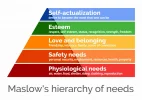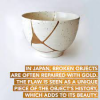Agata
Well-Known Member
Hello everyone!Great news, everyone! Wonderful Jenn from Joyful Heart Designs is offering a $10 coupon to her store to the winner of this challenge! Thank you so much, @joyfulheartdesigns, you rock!

My name is Agata, and I am just a regular member of Oscraps. I want to propose a new monthly challenge. There is no reward, but hopefully there will be an opportunity for some verbal and/or visual discussion, taken even a step deeper than in art journaling. I want to “steer the pot” a little. Nothing too controversial, but maybe just a little bit more challenging than the “mainstream” scrapbooking topics. I want to focus on an interesting series of concepts, starting with body, mind, and spirit, each in its own monthly challenge. Here we go then! Our focus this month will be on the human body, specifically a woman’s body (your own?). Let’s start with some…
FOOD FOR THOUGHT:
Definitions:
Body is…
- the physical structure of a person, including the bones, flesh, and organs
- the material part of a human being, together with its various physiological processes and needs
- the physical and mortal aspect of a person as opposed to the mind, soul, or spirit
- the two most basic layers of Maslow’s hierarchy of needs
- As I face my mom’s aging process, and – let’s face it – her mortality, I think a lot about body, especially since I’m aging too (duh!) and approaching the time of menopause. Here are some of my musings.
- We often hear that there is enmity and war between our “bad” body and “good” soul. I disagree — “For it is from within, that evil comes” (Mk. 7:21). Our body can be seen as a tool, just like any other. Think of a knife: it can be used to slice bread for the hungry or to harm an innocent. The same applies to the body: it can be used to build meaningful connections, show love, care, and tenderness – yes, also in a sexual way — or it can be turned into an object of trade, a weapon of hatred, abuse, and discrimination. A knife, in itself, is neither good nor bad; it’s amoral. The body is amoral, too.
- The body is our home, our protection, the tool we’re using, and only through the body can we interact with the world. We are physical, material beings. We are physiological and sensual.
- At the same time, the body is much more than just “our home” or “a tool” we use. Otherwise, it would imply that the body is separate from “the real us” as a vessel is separate from the substance that fills it. It is not! We cannot really separate our body from our consciousness (mind, soul, spirit, etc.) – at least not yet, not in this life. We are both visible and invisible universes. Through various life experiences and inner physiological processes, the body influences our mind and soul, and in turn, they shape our bodies through the beliefs they hold.
- The world mostly expects women to conform to a certain way. This applies to our attitudes but also—perhaps even more so—to our physical appearance. We feel pressured to be beautiful and to meet society’s ever-changing standards. As Gloria explains in the famous Barbie monologue: “You have to be thin, but not too thin. And you can never say you want to be thin. (…) You're supposed to stay pretty for men, but not so pretty that you tempt them too much or that you threaten other women because you're supposed to be a part of the sisterhood. (…) You have to never get old, never be rude, never show off, never be selfish, never fall down, never fail, never show fear, never get out of line. It's too hard! It's too contradictory…” Yes! You need to be thin, young, healthy, and beautiful. Otherwise, you'll be judged harshly. But at the same time, you must love yourself, embrace your natural beauty, and love your body exactly as it is with all your so-called imperfections. Now, we find ourselves torn between two extremes: the “Barbie doll” and the “flower child.” What if I don’t like my armpits hairy? Does that mean I’m brainwashed by society? What if I enjoy playing with makeup? Does that make me fake? What if I’m dieting? Does it mean I hate my body? Or maybe I’m dieting because I love my body and want it to be healthy. Does that mean I support ableism? It’s exactly as Eleanor Roosevelt said: "Do what you feel in your heart to be right, for you'll be criticized anyway.”
- How do we measure our worth? The value of a person, especially a woman, is a concept shaped by various belief systems, from religion to society. Consider the oldest figurines, like the Venus of Hohle Fels. They show full-figured women with large breasts, thick thighs, and prominent posteriors. This represented the ideal of beauty in the Paleolithic era: a well-nourished, strong female capable of bearing many children and working hard. She embodied both the archetype of a mother and a sexual object. Today? The beauty standard is quite different, but the underlying archetypes remain the same. We are still expected to be mothers or sexual objects, ideally both at the same time. If we don’t conform—if we don’t have children or our bodies don’t fit societal norms of “desirability”—we are often seen as less valuable (hello racism, sexism, homo- and transphobia, fatphobia!). And, sadly, many of us start to believe this too…
- How else do we measure our worth? Consider the role that work and success play in our lives, and consequently, the exhaustion that usually accompanies them. What value do we assign to rest and play? The more we work hard, the more praise and rewards we receive, initially from our parents and later at work. Have you ever received an award for good rest or excellent playtime? In society, the more successful you are, the more you are admired. Exhaustion from hard work is seen as a badge of honor, but if rest is required, it’s frowned upon. We are made to believe that we are only as valuable as our contribution to the common good, so we feel the need to produce and be useful to prove our worth. If, for any reason, we can’t produce or perform at the expected level, we are considered less valuable. As a result, sickness, physical or mental, disability, and age still mark us as “not good enough” (hello, ableism, ageism!). Unfortunately, we tend to believe these societal misconceptions, as well…
- “Equally damaging is our insistence that all bodies should be healthy. Health is not a state we owe the world. We are not less valuable, worthy, or lovable because we are not healthy. Lastly, there is no standard of health that is achievable for all bodies.”
― Sonya Renee Taylor, The Body Is Not an Apology: The Power of Radical Self-Love
- “Racism, sexism, ableism, homo- and transphobia, ageism, fatphobia are algorithms created by humans’ struggle to make peace with the body. A radical self-love world is a world free from the systems of oppression that make it difficult and sometimes deadly to live in our bodies.”
― Sonya Renee Taylor, The Body Is Not an Apology: The Power of Radical Self-Love
- Since birth, our bodies have experienced constant changes. Each stage of life brings its own joys and challenges, from the hormonal storms of adolescence to those of late adulthood, and many other upheavals in between. As we age, our awareness of mortality grows. Our parents get older and pass away. Our strength shifts, we may lose some abilities we once had, and we face sickness and suffering.
- My mom and I are very close. She is 83 years old, and in recent years, she has gone from being a highly active person to nearly disabled. Her body “betrayed” her, as she sometimes says: it aged, but it also stopped working properly. Since I often help her take care of herself, I frequently hear how she talks to and about her body, and I gently scold her. Yes, she is no longer as beautiful and able as she was in her 20s, 40s, or even 60s. She’s no longer the one who always runs to help others; now she needs help, but because of that, she is no less beautiful, capable, or “useful.” She’s just all these things in a different way. This is what I tell her: Never say that your body is useless, ugly, or stupid. It is not! It’s the same body that was loved, cherished, and desired. Because of it, you experienced all these things. You received and gave love. You traveled to new places, saw beautiful nature and art, listened to music, shared your opinions, tasted exciting flavors, and smelled lovely fragrances. Thanks to this body, you gave birth to me and were able to raise me. You cared for me, my dad, my grandmothers, and all the friends and family who needed help. It’s this body that laughed until your belly hurt, cried, got angry, and fought for what’s right. It ran to help helpless people and animals. It created fantastic dishes, thoughtful articles, poems, and art. It planted the garden. Made friends for better or worse. Went through hardships and deep lows, as well as felt elated and incredibly happy. Thank your body, show it your love and appreciation, your gratitude, and honor it. Let it rest! It’s been taking care of you for so long; now it’s your turn to take care of it. Be gentle with it…
OK, long lecture but it’s exactly what I want you to do now: reflect on your body with all its beauty and troubles, then create a scrap about it. Everything is allowed: photos, no photos, templates, no templates, one-pagers, two-pagers, series of scraps, any size, etc.
Rules:
It’s a safe space, so you can be raw. Please follow the general Oscraps rules for the Gallery and Forums (I suppose I've pushed the nudity part to its limits ). Other than that, let it go and “dance like no one’s watching”
Reward:
There is no reward, but at the end of the month, I will randomly select one winner (or possibly two, along with some honorable mentions).
How to Post:
Please share your artwork in the "Members' Gallery" and then in a thread below.
Example:
Credits:
If you have any questions or comments, please don't hesitate to contact me in this thread or via direct message.
Last edited:

![[Woman's] Body.jpg](/community/media/womans-body-jpg.412446/full)





